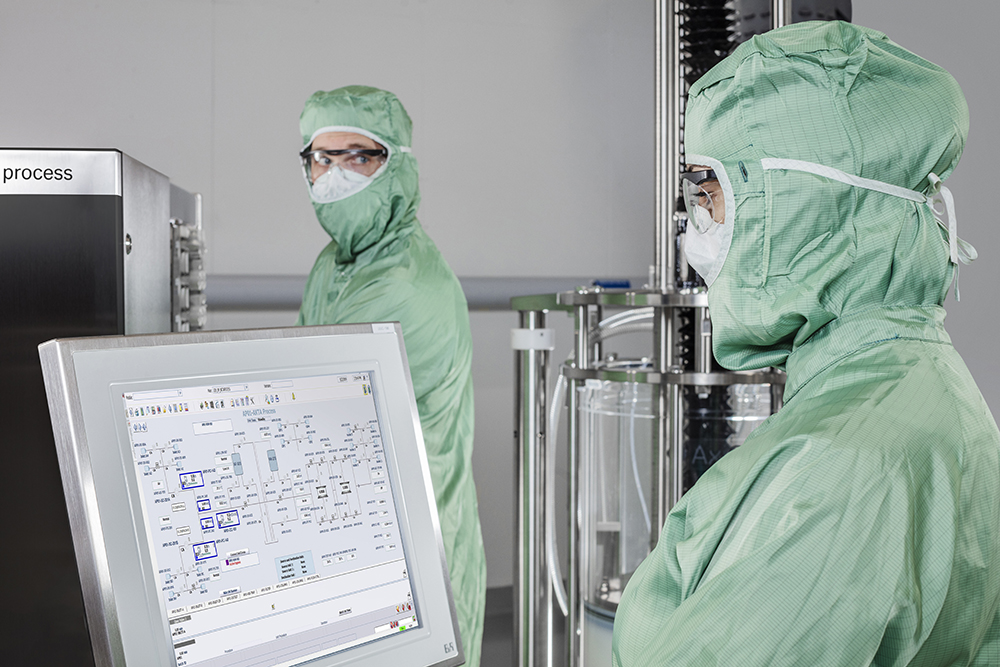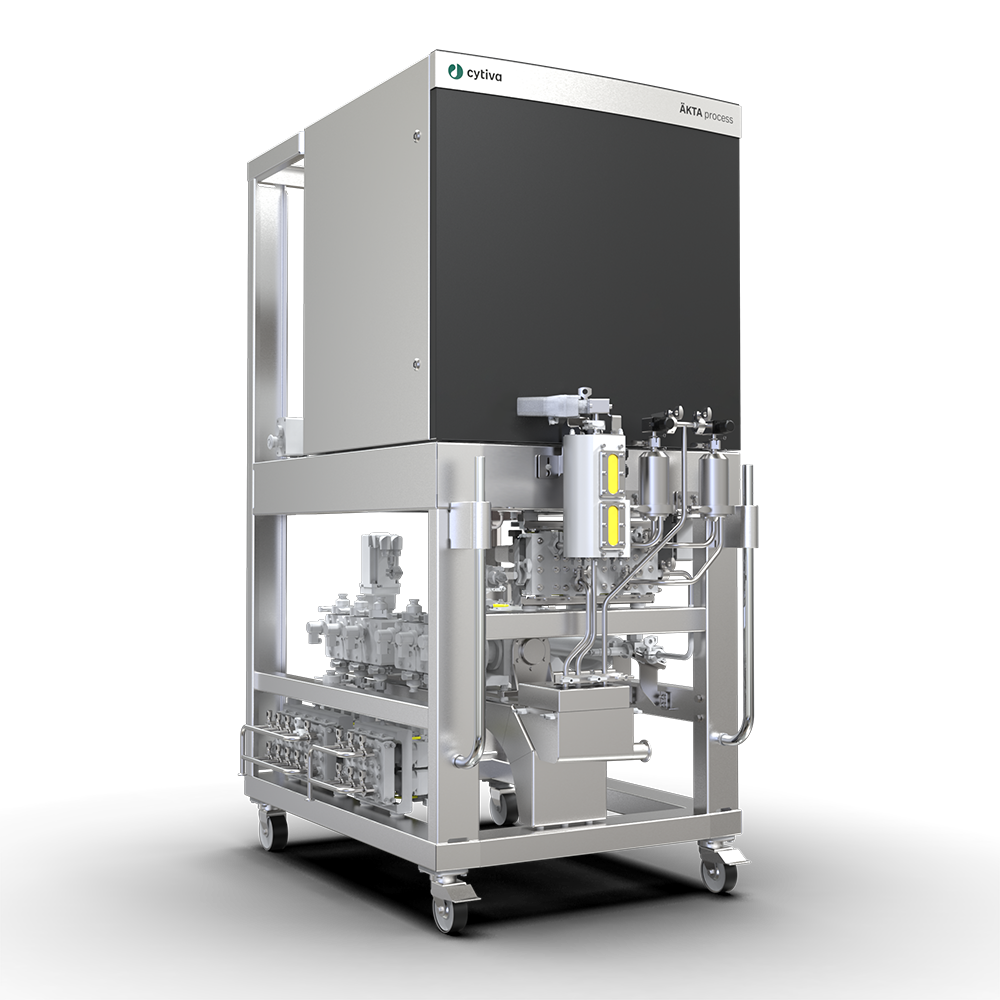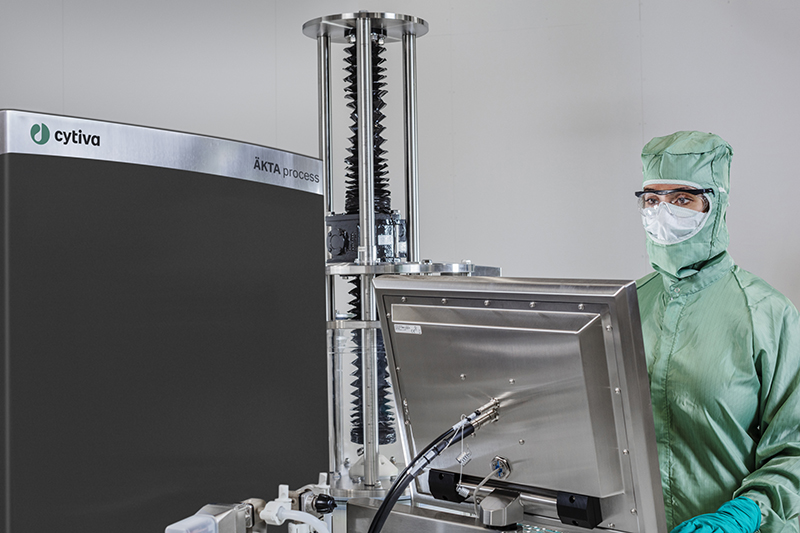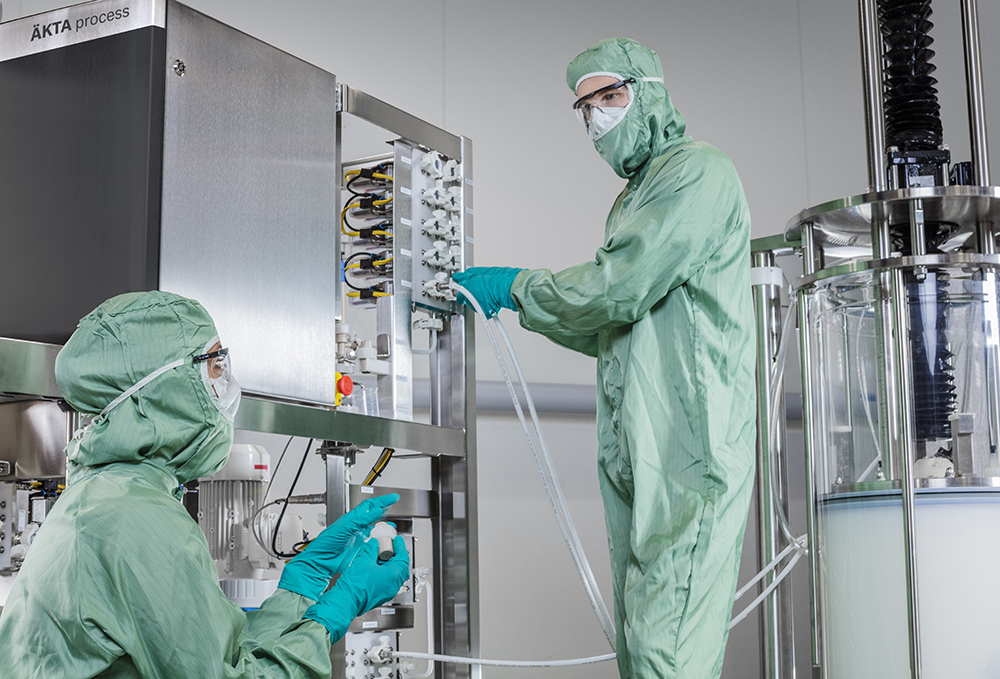High-Quality Chromatography System Meets Predesigned DeltaV For Integrated Manufacturing
ÄKTA process DCS supports the move beyond islands of automation by combining a high-quality chromatography system and proven industrial automation.
The benefits of automation in biopharma are well established. Using advanced software to automate drug manufacturing processes allows for not only real-time process understanding and control but also improved consistency and repeatability. These are crucial in biopharma, where new and complex drug products as well as more stringent drug quality requirements have led to increased regulatory oversight across the entire supply chain. As manufacturers continue to realize the value of data in quality assurance, they must integrate a system that can help collect and manage it. If not, they may face questions from the FDA and other regulatory bodies that could delay their drug’s market approval. This is evident in a report from 2018, which found that 49% of 483 Warning Letters issued by the FDA cited 21 CFR data integrity1 violations, a problem with completeness, consistency, and accuracy of data the agency continues to deal with today.1,2, 3
Implementing a distributed control system (DCS) for facility-wide control of biomanufacturing can help overcome these issues by supporting your company with data management and quality control now and well into the future. As a pioneer in driving growth and innovation in biological therapies, we have designed a pre-defined solution, Figurate™ automation powered with Emerson DeltaV™, to address this challenge. Now, it is available as a turnkey solution by combining Our high-quality ÄKTA™ process chromatography system with the reliability of the DeltaV DCS platform. The solution can be delivered as a stand-alone, unit operation or as a part of our FlexFactory™ biomanufacturing platform.
Implementing a distributed control system (DCS) for facility-wide control of biomanufacturing can help overcome challenges with completeness, consistency, and accuracy of data.
ÄKTA process DCS Chromatography System
We designed the first chromatography system for the biotechnology industry in the 1980s, which is considered as the predecessor of the ÄKTAprocess™ chromatography system. This automated liquid chromatography system offers users thousands of configuration possibilities, and today, there are over 2,000 systems installed globally on the ÄKTAprocess platform. Most of these systems are equipped with our UNICORN™ control software. UNICORN is scalable and provides built-in knowledge for creating recipes/methods and controlling runs as well as analyzing results. Critical data can be shared between all users and systems, resulting in full flexibility for optimal resource utilization. This is essential to success, especially as the use of expedited approval programs significantly shrink development timelines and increase pressure on process development scientists to work faster and more efficiently.
Since the first version of UNICORN was launched in the early 1990s, the software has been predominantly used in process development and clinical scale manufacturing due to its flexibility, but even in full-scale manufacturing, as scaling up the process using the same software provides many benefits. However, as the industry continues to embrace automation and its ability to drive efficiency and innovation in biopharma, we are seeing increased demand to move toward more standardized automation solutions, especially in a full-scale manufacturing environment where the requirements are different.
That is why we have now developed ÄKTA process DCS, a turnkey solution that combines a high-quality chromatography system and proven industrial automation. The system comes with a predefined automation software solution that applies our process and equipment expertise to Emerson’s DeltaV™ distributed control system (DCS) platform. The control architecture enables the system to be used with basically any other control platform via Ethernet/IP. Our decades of experience with control software and chromatography translate to a solution that is designed and optimized with the needs of the biopharmaceutical industry in mind.
Our new ÄKTA process DCS comes with a predefined automation software solution that applies our process and equipment expertise to Emerson’s DeltaV™ distributed control system (DCS) platform.
For systems with DCS software, customers will work with one of our project managers from quotation to delivery. Our experienced team of application specialists to create a custom design for their ÄKTA process DCS system based on their own, predefined user requirement specifications (URSs). We also provide a verification documentation package with the system, which details the information needed to satisfy regulatory expectations. If the customer should purchase another system later, this documentation provides a clear handshake by outlining exactly what the customer can expect with every order.
Moving Beyond Islands Of Automation
Early adoption of automation in biopharma has often led manufacturers using a vendor’s own control system and user interface for a specific unit operation or single piece of equipment. This system-level automation is then equipped with PLCs (programmable logic controllers), so they can operate within the preset parameters. Collecting data from these “islands of automation” is a manual task, requiring facility personnel already responsible for critical steps in the drug development and manufacturing process to also learn various interfaces and software as well as use separate login information for every system. When only local access is available, troubleshooting and user management also become manual and must be done onsite instead of automatically and in a secure way being deployed over the site.
As a company continues to grow ― and adopt new equipment ― these islands of automation become part of a larger, but disconnected control environment. In many cases, a DCS can integrate these islands of automation by plugging each one directly into a server infrastructure, so everything runs consistently. Relying on one user interface and software facilitates operations, as a single sign-on can be used to view data from each of the systems in one central location and can even be done remotely. Emerson’s DeltaV is a widely used DCS in the pharmaceutical industry, as it is a proven solution for storing third-party data that simplifies operational complexity, eases engineering management, and offers a secure, robust way to manage data.
With islands of automation data collection becomes a manual task, which also means that the facility personnel need to learn various interfaces and software. In many cases, a DCS can support with the integration.
These reasons and more are why we chose to include DeltaV platform in its automation solution, Figurate. The Figurate solution powered by DeltaV is designed and verified using GAMP5 methodology, is compliant with ISO9001, and includes an open software architecture that can be applied to a single-unit operation or to an entire facility at the pace your business moves. The Figurate platform on DeltaV covers other technologies and applications, including bioreactors, mixing, filtration, chromatography, and also new applications, such as periodic countercurrent chromatography (PCC), inline dilution, and inline conditioning. Our experts can adapt the system to your existing facility setup, even if it includes techniques and technology not supported by the Figurate automation product. Now, we have expanded on its extensive expertise with control software by updating its ÄKTA process DCS chromatography system with Figurate automation powered by DeltaV to make the solution more suitable for full-scale manufacturing activities.
A Turnkey Solution From A Trusted Provider
A growing trend with drug manufacturers implementing full-scale automation is to leave critical decisions about the key functionality of the system and the facility to the engineering company configuring the DCS. Without bioprocessing knowledge, a third-party integrator could create a system that is too simplified for the complexity of drug development, which may prevent you from producing the amount of product for which your facility is built. With the ÄKTA process DCS, our automation experts collaborate with in-house application and process specialists to ensure they understand your needs and build a system with the critical functionality needed for every step in your process. The result is a turnkey solution that combines bioprocessing expertise and proven industrial automation with high-quality chromatography in one system, ultimately streamlining design and implementation.
For example, a stick build, where a skid is supplied by Vendor A and the software is supplied by Vendor B, can take more than a year to successfully install in a customer’s facility. This is due to the issues that can arise from the absence of any collaboration between the companies prior to the installation of the hardware and software. Instead, we build even your customized ÄKTA process system by applying your URS to a standard skid while simultaneously configuring the software using pre-validated software modules, enabling thousands of available combinations. We have also prepared its database to seamlessly import into its customers’ databases using prefixes that prevent overlap with existing file naming conventions. If this is not done first, it can lead to confusion about which naming convention should be used as well as potential issues should the vendor override something within your system during implementation. In addition, we can perform a test import of the configuration into a copy of the customer’s existing database, which results in a report of the findings and suggested procedures that can speed up installation and start-up.
With the ÄKTA process DCS, our automation experts collaborate with in-house application and process specialists to ensure they understand your needs. The result is a turnkey solution that combines bioprocessing expertise and proven industrial automation with high-quality chromatography in one system.
We test the system functionality by beginning with an initial debugging to ensure the software and hardware are working properly. It is beneficial to test and debug the control software using the final configured hardware, thereby securing full functionality before final testing of the equipment.
Next, a complete functional test is performed on the hardware and software to ensure that flow and mixing control are working together with instruments, such as flow, pressure, level, pH, conductivity, and UV. All the necessary documentation needed for regulatory approval, such as material certificates, is then collected and provided to the customer. Factory acceptance testing (FAT) can be completed onsite in Sweden or remotely through a high-quality audiovisual stream, where the customer is able to investigate the system and ensure repeatability by comparing its results with earlier results from us. Once the system is approved by the customer, it is shipped to their site, where we can help install, test, and implement the software in the customer database. This final step typically takes around a week. If you already use DeltaV in your facility, the ÄKTA process DCS chromatography system can be easily integrated within your existing environment. As your facility and needs change, we are able to execute post-purchase upgrades to update the configuration of your system.
The availability of three different sizes of the ÄKTA process DCS system that utilize the same functionality means the same type of equipment can be used for different steps in the process as well as for easy scale-up. You can start with the smaller system and easily adjust as you grow. Process scale-up can be achieved by adding more systems or increasing the flow of your existing equipment. Customers new to the market also have the option of purchasing the system with UNICORN and later, when new needs arise, convert to ÄKTA process DCS to fulfill new requirements driven by full-scale manufacturing.
Overall, automation plays an essential role in the future of biopharma by driving connectedness and optimization at every phase of development and manufacturing. Future proofing your facility by implementing proven automated technologies that facilitate scale-up, such as ÄKTA process DCS, can enhance consistency and reliability while ultimately improving the quality of your drug product.
1Data integrity refers to the completeness, consistency, and accuracy of data. Complete, consistent, and accurate data should be attributable, legible, contemporaneously recorded, original or a true copy, and accurate (ALCOA) (Source: https://www.fda.gov/files/drugs/published/Data-Integrity-and-Compliance-With-Current-Good-Manufacturing-Practice-Guidance-for-Industry.pdf)
- Unger, Barbara. (July 14, 2017). An Analysis Of FDA Warning Letters On Data Governance & Data Integrity. Pharmaceutical Online.
- Neumeyer, Michelle. (June 23, 2020). Data Integrity: 2020 FDA Data Integrity Observations in Review. American Pharmaceutical Review.
- FDA. (April 2016). Data Integrity and Compliance With CGMP Guidance for Industry.
- Product page: ÄKTA process DCS
- Read more about Figurate automation solutions
- Article: Optimize Bioprocessing Efficiency With A Standardized Automation Platform For DeltaV



